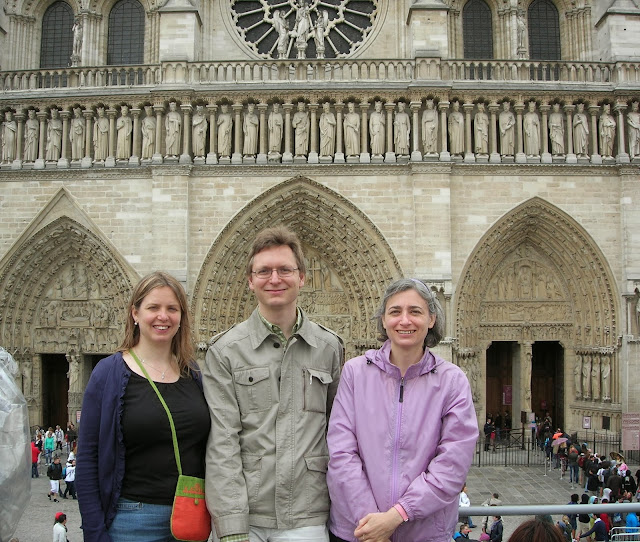There are a number of reasons that I am uncomfortable with equating prostitution with human trafficking
It seems to play with the numbers and understanding of
"unwilling" and "being forced" so that anyone doing sex work is seen as a
victim. Any woman who might argue that she is okay with what she does,
even might enjoy certain aspects of it, and/or is willing to do this out
of love/care for another is thus considered to be lying or too
traumatized/indoctrined.
We, those striving against human
trafficking, know better than she does. And her voice and self is
irrelevant except in as far as she can receive (and accept) help. I personally find this view simplistic of all the complicated aspects of prostitution. More so, it does not seem to value those in prostitution as being fully persons:
imago Dei.
Linking
human trafficking with prostitution also feels like an argument used by
well meaning Christians to convince non-Christians, who won't
necessarily see prostitution as being against God's good order, to see
prostitution as an evil - and thus to join
us in fighting against it. I very much believe prostitution is not part of God's ideal, but then shouldn't we be fighting to make things better for the women now here instead of women we imagine are suffering?
Those
who have met and talked to the women and who have listened at least
some of their stories know that things are not simple. Human
trafficking certainly happens, but it is often a strange mixture of bad
choices, lack of a future, concern/care/love for others, cohersion and
violence, poor regulations, and (country/land) corruption. Sin and evil
play a significant role.
I have spent two years meeting
bi-weekly with various prostitutes. None has ever told me she was being
trafficked or pimped out, although a few have mentioned that they experienced it in
the past. At the same time, I have lost count of how many have told me
that have been mistreated by clients or those whom they rent their
windows from. They feel unsafe - the rent they pay and the
alarm bell are no guarantee for help when needed. And so, they are open to alternative means of more effective protection: in other words, a pimp might not be worse that what they know experience.
It
seems easy to talk about how we want to stop human trafficking - after
all, who wouldn't support that? Yet, it is much more difficult to talk
about how we, as Christians, love the women as they now are and as they
now experience the world, amidst all the difficulties of now. Amidst the
pain of not making ends meet. Amidst not understanding all of the
strange regulations (that are only found in Dutch) - and the poor treatment they receive when they try
to understand things better, whether it be on account of language,
nationality or profession. Amidst not having anyone to tell their story
to of how a client tried to force them to have sex without a condom. No
one to reinterpret their story to say that that was
rape, even if
the police won't file a report since "it's your job." Amidst the pain
of feeling like they have so little choice - where else can they find
somewhere else to make enough money to pay the rent and still send some
home? And then, on top of that, not being seen or heard by those who claim to
come help?
Perhaps there is also the difficulty of a
pimp or trafficking in the midst of all those other pains and
difficulties. However, until many of those other pains and worries -
from the necessity of making enough to make ends meet and stay safe in the midst of
this crazy world to simply being seen and appreciated as a worthwhile
person - until these things are addressed, human trafficking is just a
strange political word that has little more effect on these women's day-to-day
reality than a cup of coffee brought by some well-meaning worker.



























